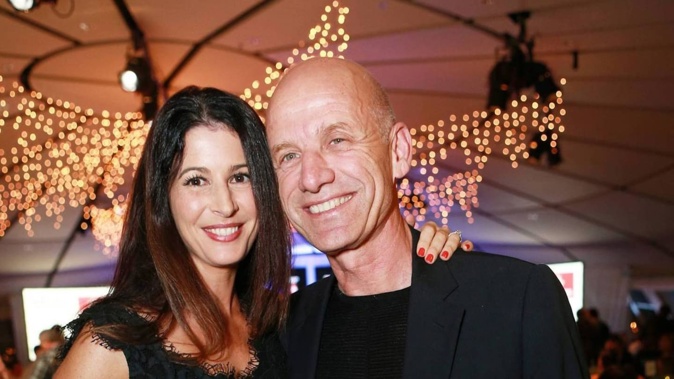
- Auckland Council withdrew a charge against Cable Bay Wine due to a missing key witness.
- The vineyard was previously fined $50,000 for breaching noise limits at its Oneroa winery.
- Judge David Kirkpatrick ruled the prosecution was reasonable, dismissing Cable Bay’s application for legal costs.
Auckland Council was forced to withdraw a criminal charge against a luxury Waiheke Island vineyard because the council officer who was the prosecutor’s star witness couldn’t be found.
The staffer’s disappearance related to an “employment issue”. But the council is refusing to provide further details, or confirm how much was spent preparing to litigate the withdrawn charge.
The revelation is outlined in a just-released District Court decision relating to a landmark noise prosecution case against Cable Bay Wine Ltd.
The Herald earlier reported that the vineyard company had been convicted and fined $50,000 after being found guilty of exceeding allowable noise limits at its Oneroa restaurant and bar.
It was the latest round in a “torturous” legal case involving years of costly litigation between the council, the vineyard and its wealthy neighbours.
The latest decision has thrown out a bid to make Auckland Council pay the vineyard’s legal costs, ruling that the first-of-its-kind prosecution was “reasonable and properly brought”.
It can also be revealed that Cable Bay has now appealed the sentence, meaning the protracted case is set to drag on even longer.
In a decision handed down in December, Judge David Kirkpatrick castigated the vineyard for its repeated action and breaches, which reflected a “high degree of culpability”.
Cable Bay Wine was found guilty of breaching noise limits on June 23, 2018.
Last year’s verdict related to an earlier case in which the company was acquitted after successfully blaming excessive noise readings on “chirping crickets” and ambient noise from passing aircraft.
 Cable Bay Vineyard on Waiheke Island. Photo / Jason Dorday
Cable Bay Vineyard on Waiheke Island. Photo / Jason Dorday
Auckland Council prosecuted the company – owned by wealthy European businessman Loukas Petrou – in August 2018.
The council originally charged Cable Bay with three separate breaches of the Resource Management Act relating to excessive noise readings in February, March, and June of that year.
But when the case went to trial in May 2021, Judge Kirkpatrick dismissed two of the charges after ruling the noise measurements were not taken from a separate property to the vineyard – as required under the act.
The vineyard and a duty manager were found not guilty on the remaining charge after a noise control officer admitted to accidentally deleting crucial evidence.
After the council appealed, the High Court upheld the 2021 acquittal but ruled Judge Kirkpatrick had erred in dismissing the two initial charges and ordered a rehearing.
One of those charges was subsequently dropped and Cable Bay defended the remaining charge at a 2023 trial where it was found guilty.
Cable Bay vineyard on Waiheke Island was prosecuted by Auckland Council for breaching allowable noise limits from its restaurant and bar. Photo / Dean Purcell
The costs decision sheds new light on why the March 2018 charge was withdrawn.
“The Council advised that the enforcement officer who was its primary witness could not be located and that this related to an employment issue.”
The vineyard questioned whether this meant the employee was an “unreliable witness”, in which case it said the council should never have laid the charge.
The vineyard also argued the council should have taken adequate steps to ensure the officer was available to give evidence. Not doing so had increased Cable Bay’s costs.
The council argued that the employee had co-operated earlier in the prosecution. It was only when the matter went to trial five years after the breaches were recorded that he was no longer employed by the council and could not be located.
In his ruling, Judge Kirkpatrick dismissed Cable Bay’s costs application, ruling the council had sufficient grounds to bring the prosecution and there was “no evidence of bad faith”.
The council had made reasonable attempts to locate its missing star witness and there was no evidence to suggest the council was at fault.
“I consider the prosecution was reasonably and properly brought and pursued and I am satisfied that the council did not act in bad faith in its conduct of the prosecution.
“I conclude that it is not just or reasonable that the council be ordered to pay any sum towards the costs of Cable Bay’s defence.”
The Herald asked the council why its star witness couldn’t be found and what “employment issues” were at play.
The council’s compliance investigations team leader, David Pawson, would not comment on the former employee or Cable Bay’s costs application.
He could not say how much was spent prosecuting the withdrawn charge as the work was done under a lump sum contract with external law firms and was not subject to individual invoices.
Petrou and his lawyer did not respond.
Lane Nichols is Deputy Head of News and a senior journalist for the New Zealand Herald with more than 20 years' experience in the industry.
Take your Radio, Podcasts and Music with you









